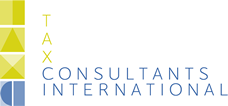On the 20th of September 2017 (Budget Day), the Dutch Government presented her 2017 Tax Plan. The Dutch Tax Plan 2017 provides for proposals for amendments of Dutch tax laws. These proposals will be discussed in Parliament the upcoming months and may be subject to change.
Below, we summarize the key proposals especially with an international context.
CORPORATE INCOME TAX
Extension first bracket (reduction effective tax rate)
Currently, Dutch corporation income tax consists of two brackets (profits in the first bracket up to
EUR 200,000 are taxed at 20%. Profits exceeding EUR 200,000 are taxed at 25%). In the Dutch Tax Plan 2017 it is proposed that the first bracket is extended to EUR 250,000 in 2018, to EUR 300,000 in 2020 and to EUR 350,000 in 2021. This will result in a lower effective tax rate.
Limitations on interest deduction for debts from affiliated entities
Article 10a of the Corporate Income Tax Act does not allow an interest deduction on debt provided by an affiliated entity in the case of tax base erosion. Tax base erosion exists in connection with specific tainted transactions (e.g. the acquisition of shares) whereby the Dutch taxable profit is reduced as a result of interest payments on loans granted by group entities whereby the group entities receiving the interest are not or only limited subject to tax. Based on current law entities are considered affiliated when shares are owned of at least 1/3 in tax paying entity or vice versa.
According to Dutch tax administration this formal definition of affiliated entity (a shareholding exceeding 1/3 of the shares) seems to pave the way to abuse there where investors act as a cooperating group but formally do not qualify as affiliated entity. Therefore it is proposed to broaden the definition of affiliated entity. If an entity independently does not hold 1/3 of the shares but is part of group of companies working together (e.g. joint acquisition), it will nonetheless be considered to be an affiliated entity.
Change of limitation on interest deduction for acquisitions within a fiscal unity
Article 15ad of the Corporate Income Tax Act includes a limitation on the deduction of interest related excessive acquisition debt. Interest deduction is not allowed when the acquiring company and target company form a fiscal unity as result whereof the results of the fiscal unity companies are consolidated and interest expenses could be allocated to the taxable income of the target company. This to avoid set-off of interest expenses against taxable profits of the acquired entity within the fiscal unity. Proposals to further restrict interest deduction include the following measures:
- “Debt Push Down”
The deductibility will also not be allowed if the acquisition debt is reported on the level of the target company (debt pushed down).
- Maximum debt financing
Currently, under article 15 only debt financing up to 60% of the acquisition price is deductible where this percentage is gradually reduced within 7 years by 5% each year up to 25%. In practice, if shares in the target company where sold a related group company, the 60% limit revived. The proposed amendment are aimed to avoid the restart of the percentage at 60%.
- Grandfather rule
The grandfather rule was put in place at the introduction of article 15ad in 2012 and indicated that article 15ad would not be applicable on existing fiscal unities up to 14 November 2011. The grandfather rule will now be amended in such a way that it will not be applicable if the Dutch acquisition company is included in a new fiscal unity.
Innovation Box
A corporation tax rate of 5% is allowed on taxable profits derived from self-produced intangible assets for which either an R&D-certificate or patent has been obtained. As a result of EU discussion on favourable EU IP regimes and the introduction of minimum rules for preferential IP regimes (OECD BEPS project) the Netherlands will adjust the Innovation Box regime in order to be compliant. The proposals relate to the entrance tickets to the innovation box and allocation of income that qualifies for the special tax rate of 5%.
- Ticket to innovation box
The proposal indicates that small and other taxpayers need to be distinguished. Small tax payers are companies with worldwide net group sales less than EUR 50 million per year and a gross benefit form IP not exceeding EUR 7,5 million per year. For small taxpayers the R&D certificate would be sufficient to enter the innovation box.
Other taxpayers will need to have an R&D certificate and additionally obtain certain documents such as patents, plant breeder’s rights, permit to trade medicines etc. This group of taxpayers will thus be subject to a double test.
- Qualifying income
A restriction is introduced with respect to the level of income that can be allocated to the Innovation Box. From now on relevant is whether research and development will be performed in-house or not and how R&D costs are divided between related parties. This implies that the more R&D activities are outsourced to related parties, the less profits can be allocated to the intangible resulting from such R&D activities The following formula has been developed to calculate the qualifying income.
{(Qualifying costs*1.3)/Total costs}* overall income from the IP asset
Qualifying costs stands for the qualifying R&D expenditures incurred by a taxpayer to develop a certain IP asset. The qualifying costs are multiplied by 1.3 (to discourage outsourcing of R&D within the group). Total costs stands for the overall R&D expenditures incurred to develop the IP asset. The outcome is to be multiplied with the overall income derived from the IP asset.
DIVIDEND WITHHOLDING TAX
Refund of Dutch dividend withholding tax for non-resident shareholders
Based on decisions of the Dutch Supreme court and the ECJ earlier this year the Dutch State Secretary of Finance issued a decree regarding the treatment of dividend withholding tax refunds by non-residents. In the court cases it was decided that non-resident taxpayers should not be treated differently from resident taxpayers. The difference in treatment is based on the fact that resident taxpayers could deduct the withholding tax from their income tax or corporation tax and non-resident taxpayers could not.
The decree indicated that non-resident taxpayers could get a refund of paid withholding tax upon request insofar as the dividend withholding tax withheld exceeds the income tax or corporate income tax that would have been due had the shareholder been a Dutch resident.
The Dutch Tax Plan 2017 is a codification of the decree issued earlier this year by the State Secretary of Finance.
INCOME TAX
Tax free threshold “Box 3” income
It is proposed that the tax free threshold will also be applicable to non-resident individual taxpayers with income that qualifies as “Box 3” income.
WAGE TAX
Abolishment of deemed employment relationship for supervisory board members
It is proposed to abolish the deemed employment relationship for supervisory board members. Consequently, it will not be necessary to withhold and pay wage tax. In earlier changes it was already arranged that no premiums for employee insurance should be withheld.
Expand possibilities to push withholding obligation of wage tax to Dutch group entity
Based on current law it is possible for an international group to push the withholding obligation of wage tax of their employees taxable for Income tax purposes in the Netherlands to a Dutch group entity. However, a condition is that the foreign group entity send its employees to the Dutch group entity. In the Dutch Tax Plan 2017 it is proposed that this condition will be invalid.
OTHER RECENT TAX DEVELOPMENTS
Dutch fiscal unity regime
In October 2015 it was proposed to further extent the Dutch fiscal unity regime for EU/EEA members. The following situations are allowed:
- between Dutch sister companies with a common parent company in another EU/EEA jurisdiction;
- between a Dutch parent company and an indirect Dutch company held via one or more EU/EEA intermediate holding companies.
This proposal has been accepted by Parliament on 27 September this year.
Dividend withholding tax for Cooperatives
The Dutch State Secretary of Finance has provided a letter to Parliament that in the near future a legislative proposal will be presented to amend the Dutch dividend withholding tax in relation to Cooperatives in order to eliminate the difference in dividend withholding tax treatment between Cooperatives and BV’s/NV’s. Currently, it is the case that Cooperatives are not subject to Dutch dividend withholding tax if certain conditions are met. Based on the proposal Cooperatives will have the same withholding tax treatment as BV’s/NV’s and thus a dividend withholding tax is introduced for Holding Cooperatives (membership of 5% or more).
In the same letter a new exemption regime was introduced for Dutch dividend withholding tax. The new regime indicates that BV’s/NV’s and Cooperatives could be exempt from withholding dividend tax obligation if the shareholder/member holds at least 5% of the nominal values of the shares/membership interest, is located in a country that concluded a tax treaty with the Netherlands and is part of a structure that is considered a business structure.


.png)

